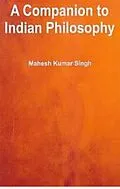India has a rich and diverse philosophical tradition dating back to the composition of the Upanisads in the later Vedic period. According to Radhakrishnan, the oldest of these constitute "the earliest philosophical compositions of the world." Since the late medieval age (ca.1000-1500) various schools of Indian philosophy are identified as orthodox or non-orthodox depending on whether they regard the Veda as an infallible source of knowledge. There are six schools of orthodox Hindu philosophy and three heterodox schools. The orthodox are Nyaya, Vaisesika, Samkhya, Yoga, Purva mimamsa and Vedanta. The Heterodox are Jain, Buddhist, Devatma and materialist. However, VidyaraGya classifies Indian philosophy into sixteen schools where he includes schools belonging to Saiva and Rasecvara thought with others. The present book provides a concise, connected account of Indian philosophy, and interpretation. This textbook introduces students to the full range of Indian philosophical thought. Contents: . Vyavharika and Paramarthika Satta . Appearance and Reality . Prama . Definition of Knowledge . Concept of Pratyaksa in Nyaya . Rna and Rta
Autorentext
By Mahesh Kumar Singh
